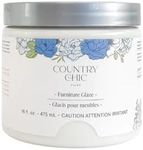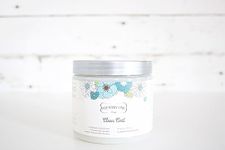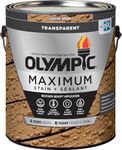Buying Guide for the Best Decking Oils
Choosing the right decking oil is essential to protect and enhance the appearance of your deck. Decking oils penetrate the wood to nourish and protect it from the elements, preventing damage from moisture, UV rays, and general wear and tear. The right decking oil can extend the life of your deck and keep it looking great for years. When selecting a decking oil, consider the type of wood, the climate in your area, and the desired finish. Here are some key specifications to help you make an informed decision.Type of OilDecking oils come in different types, such as natural oils, synthetic oils, and hybrid oils. Natural oils, like linseed or tung oil, penetrate deeply and provide a natural finish but may require more frequent reapplication. Synthetic oils offer better durability and UV protection but may not look as natural. Hybrid oils combine the benefits of both. Choose based on your preference for appearance and maintenance frequency.
UV ProtectionUV protection is crucial to prevent the wood from fading and deteriorating due to sun exposure. Decking oils with high UV protection will keep your deck looking vibrant for longer. If your deck is in a sunny area, opt for oils with strong UV inhibitors. For shaded areas, UV protection is still beneficial but less critical.
Water ResistanceWater resistance helps protect the wood from moisture damage, such as warping, cracking, and mold growth. Decking oils with high water resistance are essential in wet or humid climates. If your deck is exposed to a lot of rain or near a pool, prioritize oils with excellent water-repellent properties.
FinishThe finish of the decking oil affects the appearance of your deck. Options include clear, semi-transparent, and opaque finishes. Clear finishes enhance the natural beauty of the wood but offer less UV protection. Semi-transparent finishes provide a balance of color and wood grain visibility. Opaque finishes offer the most color and protection but hide the wood grain. Choose based on your aesthetic preference and the level of protection needed.
Drying TimeDrying time varies between decking oils and can affect how quickly you can use your deck after application. Faster-drying oils are convenient if you need to use the deck soon after application. However, slower-drying oils may penetrate deeper and provide better protection. Consider your schedule and the weather conditions when choosing based on drying time.
CoverageCoverage refers to how much area a certain amount of oil will cover. This can vary based on the type of oil and the wood's porosity. Higher coverage oils are more economical and require fewer coats. Check the product label for coverage information and calculate how much you need based on your deck's size.
Ease of ApplicationSome decking oils are easier to apply than others, depending on their consistency and formulation. Oils that are easy to apply can save time and effort, especially for DIY projects. Look for products with good reviews on ease of application, and consider whether you prefer using a brush, roller, or sprayer.


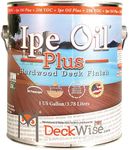


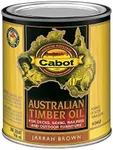


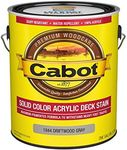

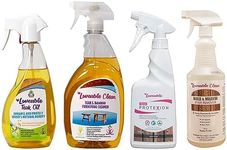


![Furniture Glaze - Antique Patina Special Effects Glaze for Chalk Style Furniture Paint, Eco-Friendly Wood Stain, 6 Color Choices - Tiger's Eye [Red Brown] - (4 oz)](https://images-proxy.bestreviews.guide/pyRIrBVyEFz_GqFv0bb1OcAgf0A=/0x150/https://m.media-amazon.com/images/I/41VtE3gL6yL._AC_CX679_.jpg)
